Podcast Topic: Food Industry Behavior & Marketing
The Leading Voices in Food
Podcast Topic: Food Industry Behavior & Marketing
 E234: White Burgers, Black Cash – a history of fast food discrimination
E234: White Burgers, Black Cash – a history of fast food discrimination
April 8, 2024
Fast food is part of American life. As much a part of our background as the sky and the clouds. But it wasn’t always that way, and over the decades, the fast food landscape has changed in quite profound ways. Race is a key part of that picture. A landmark exploration of this has been published by today’s guest, Dr. Naa Oyo A. Kwate. She is an Associate Professor in the Department of Africana Studies and the Department of Human Ecology at Rutgers University. Her book, recently published, is entitled White Burgers, Black Cash: Fast Food From Black Exclusion to Exploitation. The book has been received very positively by the field. And was recently named the best book in the field of urban affairs by the Urban Affairs Association.
Related podcasts: Equity, Race & Food Justice | Food Industry Behavior & Marketing | Food System Narratives |
 E230: Results from a national consumer attitudes survey on dollar stores
E230: Results from a national consumer attitudes survey on dollar stores
February 22, 2024
Dollar stores are the fastest growing food retailer in the United States, both by sheer number of stores and consumer food purchases. Just two corporations, Dollar General and Dollar Tree, which also owns Family Dollar, operate more than 35,000 stores across the country. However, a growing body of research reveals that dollar stores offer limited healthy food options. Dollar stores shape the food environments of communities, especially in the South and Midwest regions and communities in rural areas with substantial shares of Black and Latin people and households with limited financial resources. What do we know about the impact dollar stores have on these communities and the overall wellbeing of community members? The Center for Science in the Public Interest conducted a national survey to understand how people perceive and actually use dollar stores. Today we will talk with lead author of this study, Senior Policy Scientist Sara John.
Related podcasts: Diet & Nutrition | Food Industry Behavior & Marketing | Food Insecurity |
 E229: From label to table: Regulating food in America
E229: From label to table: Regulating food in America
February 14, 2024
How did the Nutrition Facts label come to appear on millions of food products in the U.S.? As Auburn University historian, Xaq Frohlich, reveals in his new book, “From Label to Table: Regulating Food in America in the Information Age,” these seemingly innocuous strips of information reveal the high stakes politics that can help determine what we eat and why. In today’s podcast, Frohlich will explore popular ideas about food, diet, and responsibility for health that have influenced what goes on the Nutrition Facts panel and who gets to decide that.
Related podcasts: Food Industry Behavior & Marketing | Food Policy | Food Safety & Food Defense | History & Food |
 E223: Food Policy Lessons from Removing Trans Fats from our Diet
E223: Food Policy Lessons from Removing Trans Fats from our Diet
December 20, 2023
In August of 2023, the Food and Drug Administration issued something known as a direct final rule, disregarded trans fats in the food supply. Consumers won’t notice changes as the rule just finalizes FDA’s 2015 ruling that partially hydrogenated oils – trans fats – no longer had “GRAS status.” GRAS stands for generally regarded as safe. We cover this issue today because this trans fat ban was the product of lots of work by a key group of scientists, the advocacy community, and others. The anatomy of this process can teach us a lot about harnessing scientific discovery for social and policy change. At the center of all this is today’s guest, Dr. Walter Willett. Walter Willett is one of the world’s leading nutrition researchers. He is professor of epidemiology and nutrition at the Harvard T.H. Chan School of Public Health, and for many years served as chair of its Department of Nutrition. He’s published extensively, been elected to the National Academy of Medicine, and it turns out, is the world’s most cited nutrition researcher.
Related podcasts: Advocacy & Food | Diet & Nutrition | Food Industry Behavior & Marketing | Food Policy | Food Safety & Food Defense |
 E205: Here’s what sugar and zero-calorie sweeteners do to your body
E205: Here’s what sugar and zero-calorie sweeteners do to your body
May 17, 2023
Today we speak with an expert on sugar and things meant to replace it. The stakes are high. Very high. Sugar consumption in the population is astronomical and so is the use of sugar replacements. Knowing the impacts of both could help experts provide dietary guidance and help consumers make decisions. Dr. Robert Lustig is Professor Emeritus of Pediatrics in the Division of Endocrinology at the University of California, San Francisco. He specializes on the regulation of energy balance by the central nervous system; body weight regulation, appetite, metabolism, and is very well known for his work on sugar and their substitutes and on policies aimed at improving the diet of the population. A YouTube video on the effects of consuming sugar called “Sugar: The Bitter Truth,” has now been viewed 24 million times.
Related podcasts: Addiction & Food | Diet & Nutrition | Food Industry Behavior & Marketing | Food Safety & Food Defense | Microbiome | Zero Calorie Sweeteners |
 E203: It works – Chile’s Law on Food Labeling and Marketing
E203: It works – Chile’s Law on Food Labeling and Marketing
April 18, 2023
In 2016, the Chilean government implemented a comprehensive set of obesity prevention policies aimed at improving the food environment for children. Results from a multi-year study of that regulation, published in the International Journal of Behavioral Nutrition and Physical Activity, can now tell us if Chilean children are better off as a result of the policy. Guests on this podcast include: Dr. Gabriela “Gabi” Fretes. She is an Associate Research Fellow at the International Food Policy Research Institute. Dr. Camila Corvalan is the Director of the Center for Research in Food Environments and the Prevention of Chronic Diseases Associated with Nutrition at the University of Chile. And, Dr. Sean Cash is an economist, Associate Professor of Agriculture, Food, and the Environment, and the Bergstrom Foundation Professor in Global Nutrition at Tufts University
Related podcasts: Child Development & Nutrition | Childhood Obesity | Children Food Preferences | Diet & Nutrition | Food Industry Behavior & Marketing | Food Policy | School Meals |
 E201: Junk Food Politics – the price of outsized corporate influence
E201: Junk Food Politics – the price of outsized corporate influence
April 10, 2023
Processed food industries are thriving in developing countries, despite government commitment to eradicating non-communicable diseases, prevention programs aim at reducing obesity, type two diabetes, and sugary beverage consumption. What’s more, political leaders in some countries are reluctant to regulate the marketing and sale of these products, particularly among vulnerable groups, like children and the poor. Like me, you might be asking yourself: why? Our guest today is the author of a new book, “Junk Food Politics: How Beverage and Fast Food Industries Are Reshaping Emerging Economics.” His name is Professor Eduardo Gomez, Director of the Institute of Health Policy and Politics, at Lehigh University.
Related podcasts: Advocacy & Food | Childhood Obesity | Food Industry Behavior & Marketing | Food Policy | Soda Taxes |
 E191: Is today’s food waste a consequence of historical public policy?
E191: Is today’s food waste a consequence of historical public policy?
December 14, 2022
Today’s podcast is part of a series on food waste. When farmers produce more of a product than people are willing to buy, or when the demand for a product falls unexpectedly, food is wasted. What role do agricultural policies and politics play in creating and perpetuating cycles of supply challenges? Our guest today is Dr. Garrett Graddy-Lovelace of American University. Garrett is an agricultural policy expert and she studies the problem of food gluts through the lens of social sciences, international affairs, history and analysis of USDA data.
Related podcasts: Agriculture & Tech | Food Industry Behavior & Marketing | Food Policy | Food Waste & Implications | International Food & Ag Policy |
 E189: FDA Plans to Update Health Claim on Food Packaging
E189: FDA Plans to Update Health Claim on Food Packaging
December 5, 2022
Food packaging can make shopping a pretty difficult process. Packaging can be a blitz of marketing strategies, where fact and misdirection are hard to distinguish. Plainly put, food labels are often confusing for consumers. So what is the Food and Drug Administration doing about this? We’re happy today to have Dr. Susan Mayne join us. She is the director of the Center for Food Safety and Applied Nutrition at the FDA. She has done a lot of work on this topic.
Related podcasts: Diet & Nutrition | Food Industry Behavior & Marketing |
 E181: UK Stands Firm in Ruling Against Kellogg Cereals
E181: UK Stands Firm in Ruling Against Kellogg Cereals
September 21, 2022
In July, 2022 food giant Kellogg lost a court challenge of the United Kingdom’s high sugar cereal rule. The multinational food company had argued that the UK government’s inclusion of their serials among and I quote, less healthy foods is unfair because it doesn’t take into account the milk that is usually added to the cereals. The UK court dismissed the claim and is enforcing regulations, is limiting the promotion of foods that are high in fat, salt and sugar in UK supermarkets as part of their efforts to curb obesity. Here to speak with us today about the implications of this ruling is Anna Taylor, executive director of The Food Foundation in London.
Related podcasts: Advocacy & Food | Childhood Obesity | Diet & Nutrition | Food Industry Behavior & Marketing | Food Policy | Food, Psychology & Neuroscience | International Food & Ag Policy |

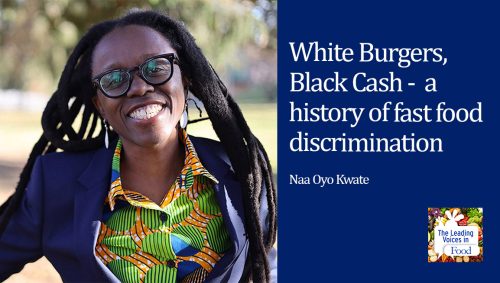 E234: White Burgers, Black Cash – a history of fast food discrimination
E234: White Burgers, Black Cash – a history of fast food discrimination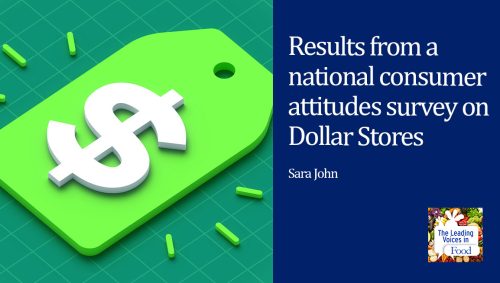 E230: Results from a national consumer attitudes survey on dollar stores
E230: Results from a national consumer attitudes survey on dollar stores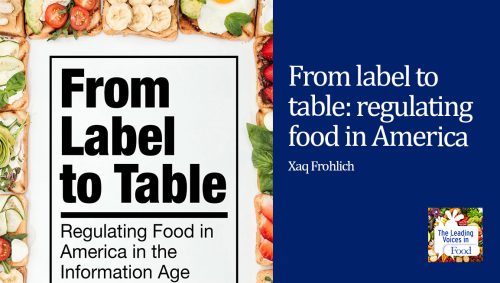 E229: From label to table: Regulating food in America
E229: From label to table: Regulating food in America E223: Food Policy Lessons from Removing Trans Fats from our Diet
E223: Food Policy Lessons from Removing Trans Fats from our Diet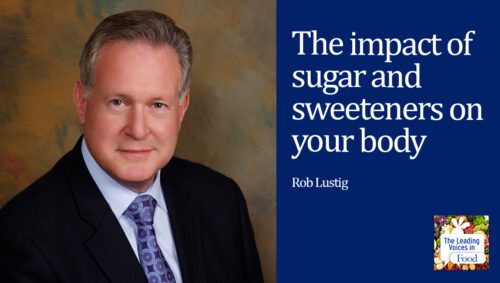 E205: Here’s what sugar and zero-calorie sweeteners do to your body
E205: Here’s what sugar and zero-calorie sweeteners do to your body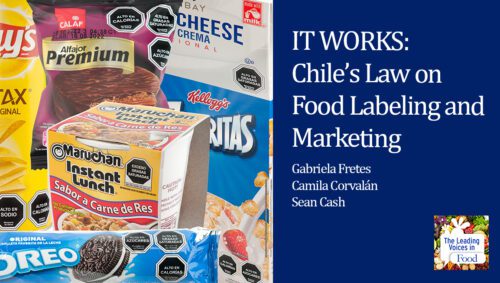 E203: It works – Chile’s Law on Food Labeling and Marketing
E203: It works – Chile’s Law on Food Labeling and Marketing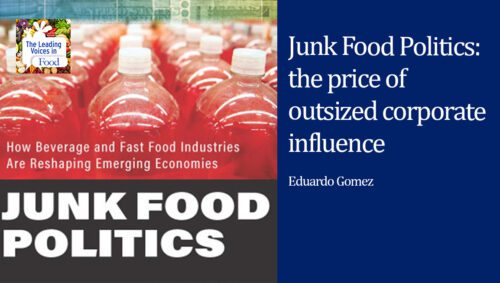 E201: Junk Food Politics – the price of outsized corporate influence
E201: Junk Food Politics – the price of outsized corporate influence E191: Is today’s food waste a consequence of historical public policy?
E191: Is today’s food waste a consequence of historical public policy?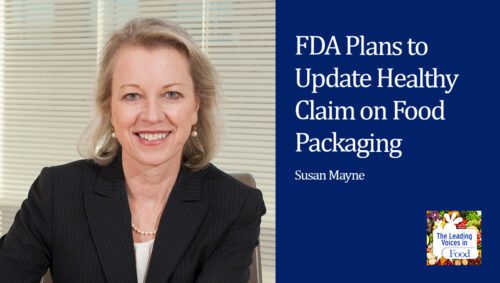 E189: FDA Plans to Update Health Claim on Food Packaging
E189: FDA Plans to Update Health Claim on Food Packaging E181: UK Stands Firm in Ruling Against Kellogg Cereals
E181: UK Stands Firm in Ruling Against Kellogg Cereals